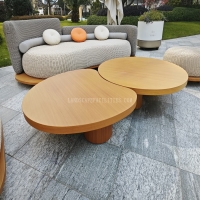Welcome to the website for landscape facilities products and knowledge.
What are the most important factors to consider when choosing a location for a landscape bar counter?
Selecting the ideal location for a landscape bar counter requires careful consideration of multiple factors that can make or break your establishment's success. The primary consideration should be the natural surroundings and views, as the essence of a landscape bar lies in its connection to the environment. A location with breathtaking vistas, whether of mountains, oceans, or gardens, significantly enhances the customer experience and justifies premium pricing.
Accessibility ranks among the most critical factors. Your bar must be easily reachable by both vehicles and pedestrians, with adequate parking facilities and clear signage. Consider proximity to tourist attractions, hotels, or residential areas to ensure consistent foot traffic. The location should also comply with local zoning regulations and alcohol service laws, which vary significantly by region.
Climate and weather patterns profoundly impact outdoor operations. Analyze seasonal variations, prevailing winds, rainfall patterns, and temperature fluctuations. Incorporate appropriate shelter solutions, heating systems for cooler evenings, and shade structures for sunny days to extend operational hours across seasons.
The terrain and topography of the site demand thorough evaluation. A relatively level area reduces construction costs and improves safety, while slight slopes can be leveraged for tiered seating that enhances views. Proper drainage systems are essential to prevent water accumulation during rainy periods.
Consider the sun's path throughout the day and across seasons. South-facing locations in the Northern Hemisphere typically receive more sunlight, which can be desirable in cooler climates but may require additional shading in warmer regions. Sunset views particularly valuable for evening business.
Privacy and noise considerations must balance with the desired atmosphere. While some separation from neighboring properties is advisable, complete isolation might reduce spontaneous visits. Assess potential noise pollution from nearby roads or activities and implement appropriate sound mitigation strategies.
Finally, evaluate infrastructure availability, including water, electricity, gas, and internet connections. Remote locations might require alternative solutions like solar power or generator systems, significantly impacting initial investment and operational costs. The ideal location harmoniously blends natural beauty with practical functionality, creating memorable experiences that keep customers returning.
Related search:

Recommendation
Elliptical metal outdoor table with nested design, resembling wood grain, round table